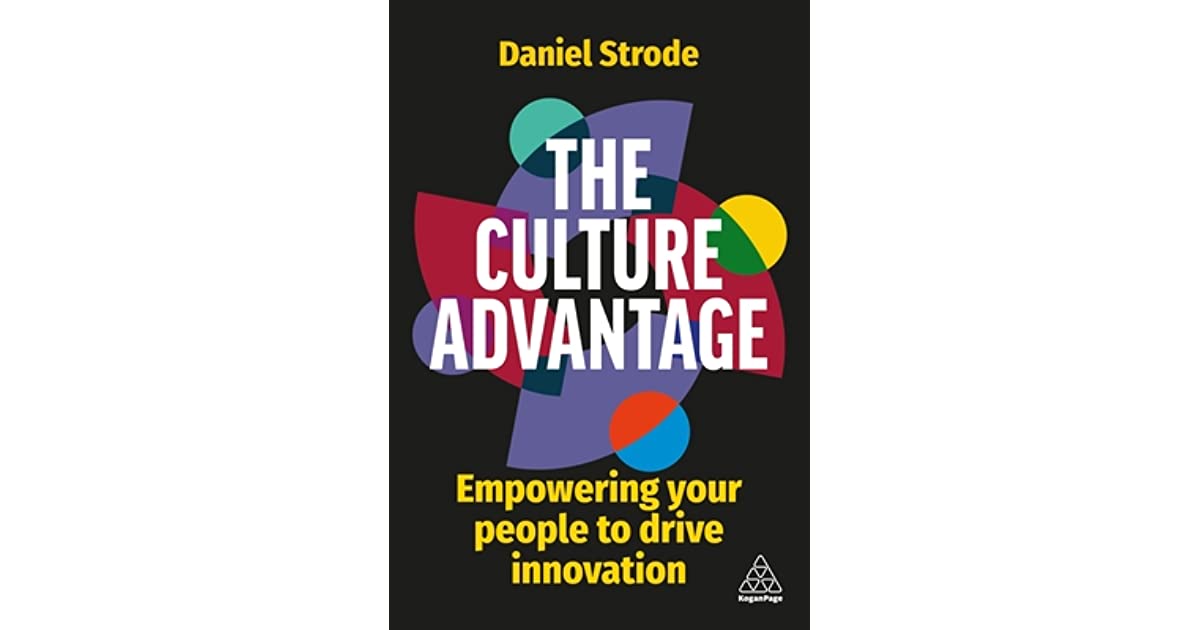Dan Strode: CEOs & Culture – A Wake-Up Call
Why are so many organizations laser-focused on culture right now, and what are the biggest mistakes they’re making? What are some small ways we can build better connections in our employees’ day-to-day lives?
These are just a few of the questions we recently asked Dan Strode, group director of culture & strategy, global HR at Banco Santander. In Dan’s new book, “The Culture Advantage: Empowering Your People to Drive Innovation,” he argues that people are the secret to innovation. He shares eight core cultural principles every company should adopt to gain a competitive advantage.

My favorite piece of advice from Dan? Be a lifelong learner: “The shelf-life of skills is ever shortening and we must go on that journey throughout our professional lives to grow and learn.”
Read our full interview with Dan below.👇
Enboarder: How did you get into the culture and people space?
Dan: My journey first started from corporate strategy beginnings. I was working in corporate strategy and noticed it was much harder to change a culture and people than it was to change the pricing of a product, for example. And the challenge excited me – it caught my attention, and I have had the bug ever since. It’s a good job I enjoy with hard challenges.
Enboarder: Your book “The Culture Advantage: Empowering Your People to Drive Innovation” published in August. Why is now the right time for this message?
Dan: Well, corporate culture has been on the agenda now for a number of years and in many companies steps are being made to mature the culture in the direction the founders or leadership would wish (hopefully incorporating the voice of their teams and customers also).
As the topic matures, it gives us greater reign to do more, push further, and go in new directions: Culture has proven to enhance businesses. When this is overlaid onto a backdrop of the fourth industrial revolution – marked by greater digitalization, hyper-speed change, and significantly increased customer expectations – companies need to innovate, or they will simply die (as is predicted that by 2027 three-quarters of the S&P 500 will have changed).
This proven impact of culture, coupled with the need to innovate, gave me the right moment to launch this book, which takes world-class, innovative companies and distills down their reasons for success into eight core cultural principles that anyone (large or small) of any industry can pick and choose from to help enhance their own businesses.
Enboarder: What’s the most common mistake you see companies make when it comes to their HR programs?
Dan: Well, the first and most important mistake is that culture is deemed an ‘HR thing.’ This is a fatal mistake for many reasons, but in essence, culture is everyone’s business. The leaders of a company need to be living and breathing the culture day in day out, otherwise it is doomed to fail.
I see too many leadership teams and CEOs outsourcing culture as a topic to HR. And when that happens, people in the company can see that the leaders don’t understand, or worse – believe – in the culture. And of course, embedding and asking teams to do what the leaders are not doing will be doomed to fail.
Enboarder: Tell us about your role as Global Director of Culture and Strategy at Banco Santander. What are your top priorities this year?
Dan: It is such a great role, being the ambassador of a common culture shared by and influenced by 200,000 colleagues in 32 countries globally. For me, it’s just about a relentless focus on culture and making sure that even on the hard days we stay true to our values and behaviors.
Enboarder: You’re also an adjunct professor. What do you think are the most important skills the next generation of business leaders need to be successful?
Dan: In my opinion, it is absolutely critical that everyone can learn. I tell my students that the best aspect of a university is that you get to learn how to learn. The shelf-life of skills is ever shortening and we must go on that journey throughout our professional lives to grow and learn.
So, the people with an aptitude and strength towards learning will win out. It isn’t necessarily easy, so I always try to foster a growth mindset (the term Dr Carol Dweck coined) and push people to take risks, try new things, and not be afraid to fail: That is where the growth and learning happens.
Enboarder: How can leaders foster more authentic human connections in today’s hybrid workplace?
Dan: There is a large body of research out there that proves teams who have great connections between themselves outperform those who don’t. And, with that in mind, I think it’s critical we take the time to foster those human connections, even more so when the workforce is remote or working in a hybrid format.
We, of course, can do things digitally, like having regular check-ins via video, or when you join a new company being assigned a buddy who will speak with you on a regular basis. But, in addition, it is vital to have face-to-face interactions. Things like team lunches, offsite meetings, customer visits, lunch-and-learn sessions, etc. These all contribute to connection and are just a handful of ideas you could consider.